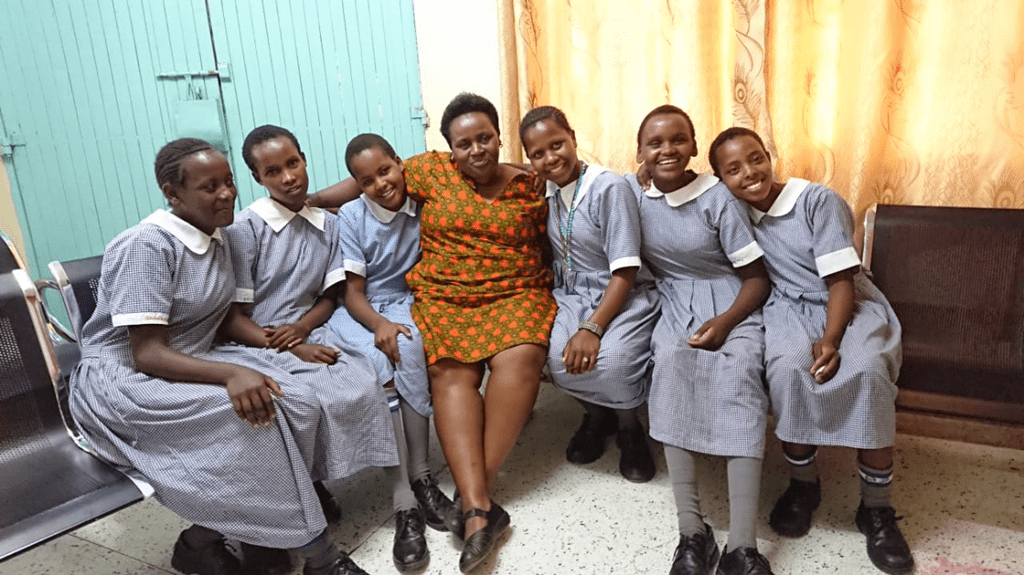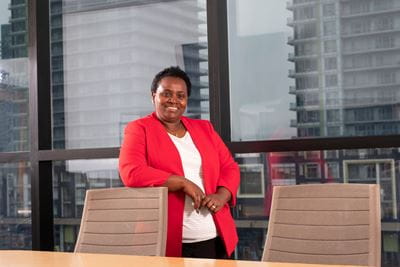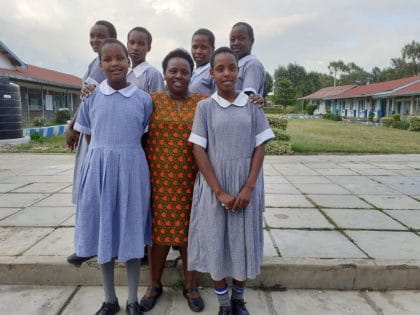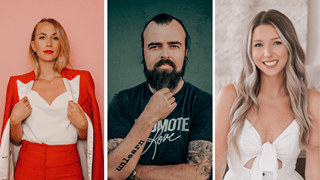
Living a life of purpose: An interview with Dr. Jane Ngobia
 by Christine Szustaczek – Mar 8, 2023
by Christine Szustaczek – Mar 8, 2023 
In honour of International Women’s Day, I sat down with one of the strongest and most authentic women I know, Sheridan’s Vice President, Inclusive Communities, Dr. Jane Ngobia. I wanted to learn how she’s combined her passion and profession, explore what keeps her grounded, and seek her insight on the lessons she’s learned while building her life’s calling.
Q: What does it mean to live a life of purpose?
Living a life of purpose means doing what truly matters to me, working in alignment with my core values and beliefs and focusing my energy on what I do best. It’s like finding your niche. You know it when you feel it. It’s about doing something that’s personally meaningful but also contributing to something larger than itself.
“Living with purpose feels natural and effortless. That doesn't mean it's easy. It just means that the motivation to continue is always there.”
When I’m not being real, everything is foggy and tasteless. I get busy and bored and tired all at the same time. Living with purpose feels natural and effortless. That doesn’t mean it’s easy. It just means that the motivation to continue is always there.
Q: I understand that you came to Canada when your two children were very young, to pursue your PhD. Can you tell me about that experience and what you learned from it about yourself?
Coming to Canada was a pull and a push. I was drawn by the opportunity to further my studies, but I also felt that I had no choice but to leave Kenya. My gender and age meant that I was being second guessed at decision-making tables.
I moved to Canada 20 years ago with an offer of admission to the University of Toronto and permanent residency papers. First and foremost, I saw myself as an international student. But I did what many immigrants do. I found a job.
It was a stark contrast to the life of luxury we left behind, with social structures that scaffolded our young family. I was a Dean of Students at a prestigious private university in Nairobi. As a work-study student in Canada, I was suddenly earning $7.50/hour. I came to appreciate the profound difference of what it means to live with and without privilege. I learned empathy. I learned mindfulness. I learned resilience. And I learned to see opportunities and to never take them for granted.
Q: You created a career in EDI long before positions like VP Inclusive Communities existed at any level of an organization, never mind at the executive table. How has your profession changed over that time? What was it like in the early days? Where is there still room for improvement?
I started my career in EDI more than 15 years ago at the University of Toronto, as a junior officer and since that time, I’ve had to change institutions along the way to progress through the ranks. Back when I started, I had no idea how my experiences as an Assistant Dean and as a Dean of Students at Nairobi-Catholic University of Eastern Africa would shape my work on a different continent, in different roles and in different contexts. But I felt much more prepared to sit at decision-making tables because I could bring a perspective that only a person with my experiences could.
Compared to the early days, people now see EDI as a shared responsibility with shared accountability. EDI used to be a job for just a few people at the periphery. The majority of leaders didn’t have the responsibility or expertise to advance it. Even worse, they didn’t think it was their mandate. The social justice awakening of 2020 brought a renewed collective consciousness. More leaders consider inclusive leadership as a core component of effective leadership.
I hope that EDI becomes a competency in every employee’s annual performance goals. For our learners, I hope that EDI gets embedded in every course with specific learning outcomes. Empathy should be an expected outcome of learning.
Q: Who inspires you? And do you have any formal or informal mentors?
I’m honoured to live a life enriched by people from all walks of life. I treasure the many diverse colleagues I’ve met in board rooms and in communities both in Canada and abroad. But no one inspires me more than the survivors of harmful cultural practices – especially the young girls who are survivors of sexual and gender-based violence. Some of them are as young as seven, eight or 10 years of age. Their courage to escape, their resolve to better their lives, and their sheer belief in humanity to protect them even when their communities have failed them … they help me put life into context and consider the multiple perspectives that each opportunity presents. They inspire me to do better.
“My life is richer because of the many students who I have worked alongside... They help keep me grounded and convinced that the work we do must be centered around our learners. It's the best way to ensure that they'll be valuable contributors to the world at large.”
When I see that my efforts directly impact a life, a family, or a community, I’m incredibly humbled and hopeful. I know I may not change the world, but I can change the lives of a few girls within my sphere of influence and provide opportunities for others to join in that work to transform people’s lives for the better. I’ve been fortunate to have many formal and informal mentors — too many to mention here. Each one has taught me something valuable and shown me that there’s always room to learn.
My life is richer because of the many students who I have worked alongside. I’ve come out of every institution where I’ve worked with a few students who have become professional peers, friends and colleagues. I cherish their mentorship. They help keep me grounded and convinced that the work we do must be centered around our learners. It’s the best way to ensure that they’ll be valuable contributors to the world at large.
Q: You have turned your passion into your career. Do you have any advice for others who want to do the same, whatever their calling?
I am extremely fortunate. My passion, profession and purpose are aligned. It’s no accident. I’ve had many opportunities throughout my career to shift into other roles that are less demanding or taxing. EDI work can take a deep personal toll. I keep at it because I have always found renewed energy and life’s meaning in the work that I do. I wouldn’t want it to be any different.
“I keep at it because I have always found renewed energy and life's meaning in the work that I do. I wouldn't want it to be any different.”
I believe that each one of us can find something that only we can do well. It usually comes at the confluence of your skills, space, and spheres of influence. Think about where you have personal drive. It takes patience and reflection to find it. But when you do, it’s usually very clear.
Q: Is there anything that you’d like to share about what you'll be doing on your parental leave to continue living a life of purpose and passion?
My husband and I have adopted a teenaged girl to expand our family. We are thrilled to bring her home and to get to know each other better. Up until now, I’ve had to spend a lot of time
processing the multi-tiered paperwork that goes with this type of adoption. In the coming weeks, I’ll be enjoying bonding time with my daughter and reading books on how to raise a girl given that I have two sons!
 I also hope to spend a significant part of my time here in Kenya expanding my reach and networks in pursuit of social justice for girls. I am currently exploring partnerships between the two organizations that I am closely affiliated with: Shirika Canada and Shirika Kenya with Kenyatta University based in Nairobi, as well as Kenya National Commission for UNESCO (KNATCOM). As a collective, we are reviewing interventions that use sports and recreational activities to engage young boys and girls in transformative educational opportunities.
I also hope to spend a significant part of my time here in Kenya expanding my reach and networks in pursuit of social justice for girls. I am currently exploring partnerships between the two organizations that I am closely affiliated with: Shirika Canada and Shirika Kenya with Kenyatta University based in Nairobi, as well as Kenya National Commission for UNESCO (KNATCOM). As a collective, we are reviewing interventions that use sports and recreational activities to engage young boys and girls in transformative educational opportunities.
We’re basing our work on a very successful pilot program in Samburu County Kenya that I co-lead called the ‘HeforShe’ pilot program funded by Global Affairs Canada and overseen by Grand Challenges Canada. We think it’s a successful model that can be scaled and adapted to different contexts. Our goal is to support young people of all genders to become change agents and champions for social justice -- including gender equality -- in their communities.
This interview has been edited for clarity and length
Media Contact
For media inquiries, contact Sheridan’s Communications and Public Relations team.





